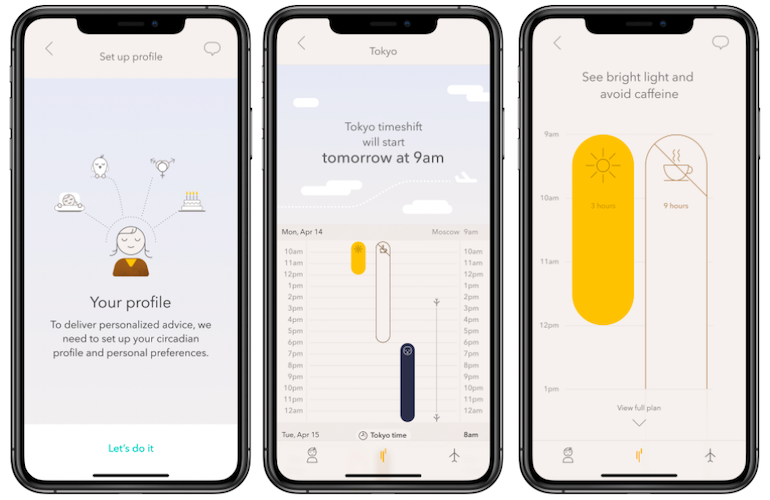First off, what is jet lag? Also known as Circadian Arrhythmia, jet lag is the phenomenon experienced when there is a difference between a person’s body clock and the time zone they are in. Jet lag is caused by quick changes in time zones while traveling. While it is nothing but a natural reaction of your body, jet lag can affect your travel plans in many ways. Finding yourself wide awake during the night or sleepy in the middle of the day is probably not how you had planned to spend the first few days of your next vacation. Though completely deleting jet lag symptoms altogether might be a bit utopian, we’ve got useful tips on how to get over jet lag.
Pick a destination with a close time zone

This is probably the easiest tip on our list, yet you’d be surprised to see how many people don’t consider this aspect when it comes to choosing their vacation place. Why so? Mostly because going away is synonymous with a large time delay to many people. Even more so if they’re looking for an exotic getaway. Let times zones prove those people wrong! Avoid being jet-lagged by carefully choosing where you’ll travel next. Say you’re leaving from London (UTC) for instance, there are many destinations to explore outside of Europe, with only a few hours of time delay.
Here are our top picks, ranging from closest to furthest UTCs:
- Morocco (+1)
- Madagascar (+3)
- Tanzania (+3)
- Seychelles (+4)
- Reunion Island (+4)
If you happen to be planning your next trip, we’ve got all the tips you need right here! Whether you’re looking for cheap plane tickets, advise on how to book a cheap hotel room or both! We’re so keen on easing your traveling experience that we even came up with a guide about renting a car on a budget!
Adapt your sleeping schedule

Most resources on ways to diminish the effects of jet lag advise a biological approach, which consists in gradually getting your body ready for the new time zone it will be in.
Let’s take an example. If you’re in Paris and you’re traveling to New York, which has a 6 hours time difference (-), you should -ideally- try and sleep and wake up one hour later than you usually do for 6 days prior to your flight. Now let’s take another example. If you’re traveling from Paris to Bangkok, which has a 5 hours time difference (+), you’ll want to do the opposite: wake up one hour earlier than you usually do for 5 days. In a nutshell, if you’re flying west, try to go to sleep and wake up later, and if you’re flying east, go to bed and get out of it earlier.
Because applying such changes on your sleeping schedule can be tricky, you should know that even a change of an hour or two can still have a positive impact on how you react to jet lag.
Use technology as a jet lag cure

Created to help travelers regulate their biological rhythm, the app called Timeshifter is of great help when it comes to limiting the effects of jet lag. Thanks to personalized advice based on circadian neurosciences, Timeshifter makes the promise to make jet lag ancient history. Available on App Store and Google Play, the app provides you with a personal jet plan, taking into account your sleep pattern, itinerary and a range of personal preferences.
Once your program is ready, it’s quite easy to use: from drinking a cup of coffee to taking a nap, the app simply tells you what to and when to do it to fight the effects of jet lag. You can choose to start getting ready before your departure or start the program on the day you fly. Though it might seem expensive at first ($9,99 for one jet plan or $24,99 for an unlimited annual subscription), it’s definitely an investment worth making if you travel several times a year. To top things off, three versions are available, depending on your profile: Business, Sport or Vacation.
Sports help cope with the time difference

Physical activity can help your body ease into a different schedule. Besides being a great way to get used to a new time zone by mimicking the locals’ routine, it will bring you just the right amount of natural fatigue to get good nights of sleep. Sports are also a great way to avoid the aftermath of jet lag: getting physical as soon as you’re back home will help you get back to your daily routine even faster.
Rely on daylight

Though it might be tempting and/or seem unavoidable, don’t give in to your habits when you get to your destination. Once you’re there, the goal is to make sure that your body adapts fast yet smoothly to the new time zone you’re in. In that process, natural daylight will be a true ally. Exposure to broad daylight in the morning will help if you’re traveling east while enjoying it in the afternoon will help if you’re headed west. This simple trick will make it easier for you to either wake up earlier or stay up later than you would have normally.
Don’t go back to your daily routine right away

Give yourself some time before going back to work or school. Though we’re aware that not everyone can take extra days off, we strongly advise you to take one or two days off after you get back from your holidays so you can readjust properly to your everyday life.


